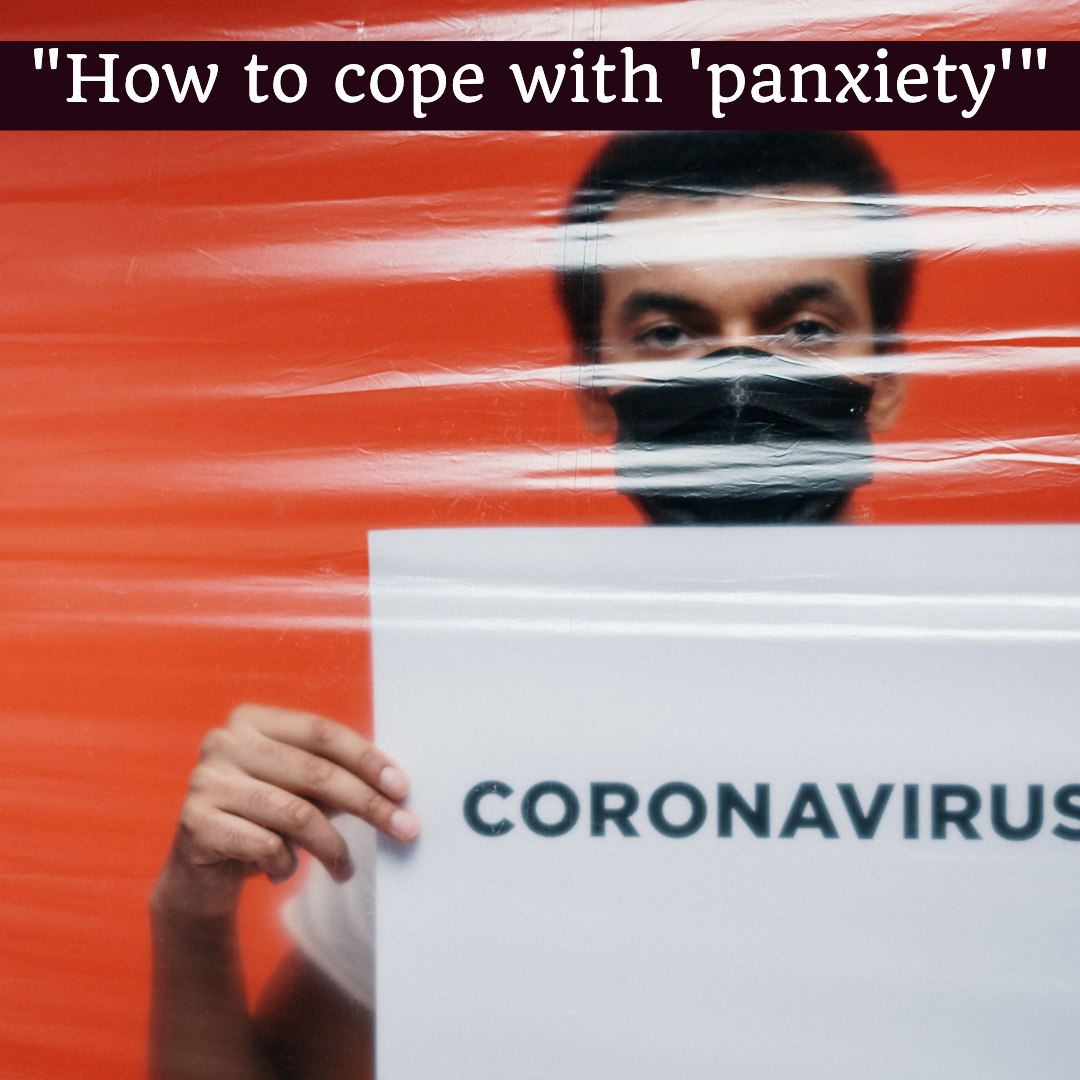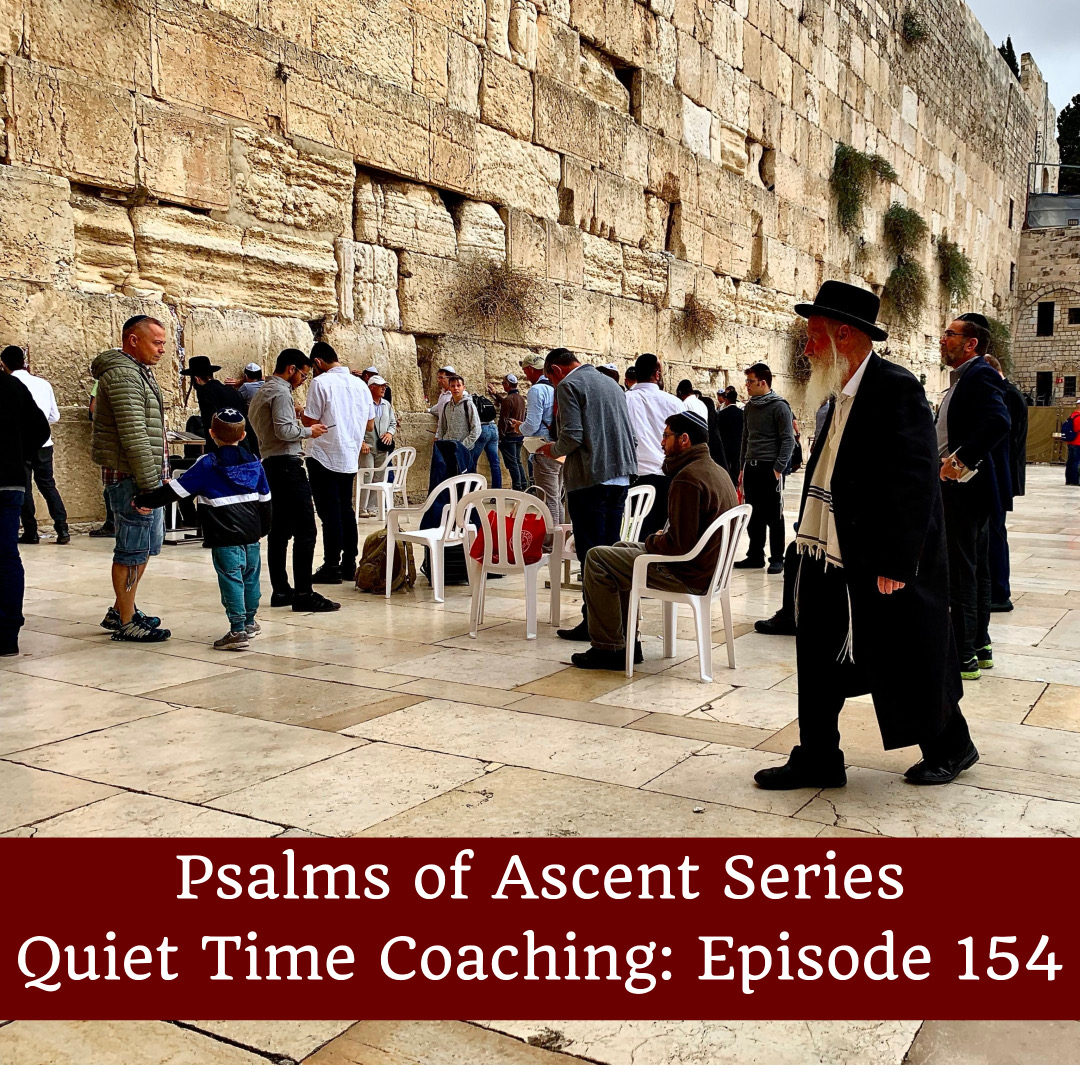Quiet Time Coaching Episode 180
Have you heard of ‘panxiety’? I heard the term for the first time today.
It’s in an article by Rev Will Van Der Hart in Premier Christianity magazine. It describes the all-too-familiar sense of anxiety caused by the current pandemic. I liked his article and thought I would bring you some of his insights.
As people of faith we don’t want to give in to fear. However, we also do not wish to be shallow and pretend as if everything is fine. It certainly is not. Last week my old GP died. Doubtless you are connected in some way or other with the trauma of tragedy currently around us.
So what do we do when our fears feel more potent than our faith? Here are four suggestions. Four suggestions for yourself, but also to help other people.
1. One day at a time. Jesus said it best, “…do not worry about tomorrow, for tomorrow will worry about itself. Each day has enough trouble of its own.” (Matthew 6:34 NIV11). Hart says, “As tempting as it may be to dig yourself a nuclear fallout bunker in the back garden, don’t!” Certainly we should be responsible and prepare for the future. However, to be consumed by such preparations is not helpful. Indeed the consequences could be worse than the virus itself. Live today in God’s grace and let that be enough for today.
2. Take a media break. I check the news two or three times a day. Usually in the morning and evening as well as once during the day. As tempting as it is to keep in touch with 24-hour rolling news, it’s not helpful. For one thing the so-called, “breaking news” is usually not very important, and has been breaking for a long time. When we are anxious we reach out for all kinds of things to give us reassurance. You may think the media will provide such reassurance. That is not their function. As Hart says, “Accept that some media outlets are trying to sell newspapers, not give you a sensible overview of what is happening.” That’s not to say the media is evil as such, nor anything close, but its purpose is not to help you. Consider this scripture – “Surely the righteous will never be shaken; they will be remembered forever. They will have no fear of bad news; their hearts are steadfast, trusting in the LORD. Their hearts are secure, they will have no fear…” (Psalm 112:6–8). We don’t need to fear bad news, but we also don’t need to overwhelm ourselves with bad news.
3. Change the subject. Talking to our friends and family is helpful. Communicating is a superb antidote to isolation. However, make sure the conversation is about more than the virus. Focusing on it only leads to greater fear. As Hart says, “You may choose to use a capsule technique and decide that you aren’t going to talk about COVID-19 for more than 30 minutes a day.” Talk about it because it’s real. Just don’t overdo it. “Do not let any unwholesome talk come out of your mouths, but only what is helpful for building others up according to their needs, that it may benefit those who listen.” (Ephesians 4:29 NIV11) Unwholesome talk is not just gossip, slander or malicious conversation, it can also be about things which are simply not helping us.
4. Prayer-trigger. Why not allow thoughts and anxieties about the COVID virus situation to be triggers to pray. As Hart says, “Try to make every consideration about this illness a prompt to speak to your heavenly Father.” These verses from Philippians are familiar to us. They are oft quoted and helpful: “The Lord is near. Do not be anxious about anything, but in every situation, by prayer and petition, with thanksgiving, present your requests to God. And the peace of God, which transcends all understanding, will guard your hearts and your minds in Christ Jesus.” But then there is another step which may follow on from such prayerfulness. Our thinking changes. We will need to decide to think differently, but God will help us: “Finally, brothers and sisters, whatever is true, whatever is noble, whatever is right, whatever is pure, whatever is lovely, whatever is admirable—if anything is excellent or praiseworthy—think about such things. Whatever you have learned or received or heard from me, or seen in me—put it into practice. And the God of peace will be with you.” (Philippians 4:4–9 NIV11)
I am grateful for the article in the magazine, and I shall be reviewing these four tips for myself. Which ones help you? What questions do you have about how to handle your anxieties? Please add your comments on this week’s topic. We learn best when we learn in community.
Do you have a question about teaching the Bible? Is it theological, technical, practical? Send me your questions or suggestions. Here’s the email: malcolm@malcolmcox.org.
If you’d like a copy of my free eBook on spiritual disciplines, “How God grows His people”, sign up at my website: http://www.malcolmcox.org.
Please pass the link on, subscribe, leave a review.
“Worship the LORD with gladness; come before him with joyful songs.” (Psalms 100:2 NIV11)
God bless, Malcolm
PS: You might also be interested in my book: “An elephant’s swimming pool”, a devotional look at the Gospel of John

